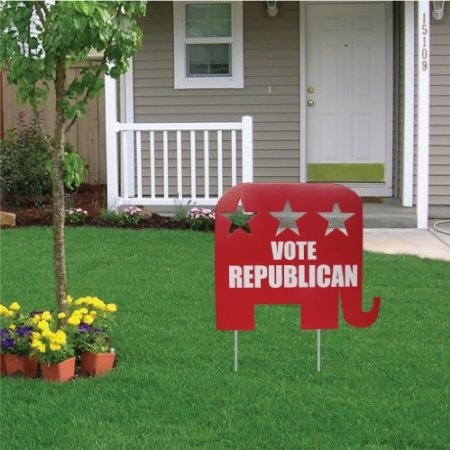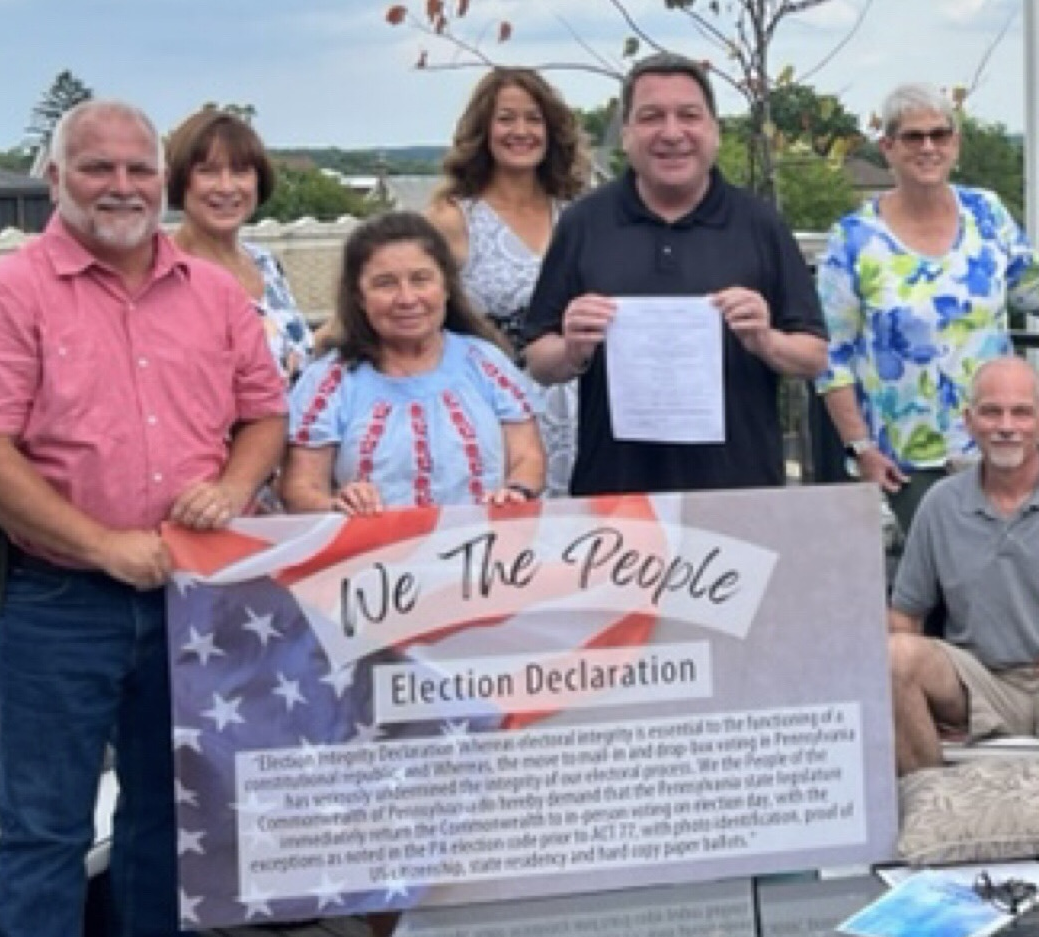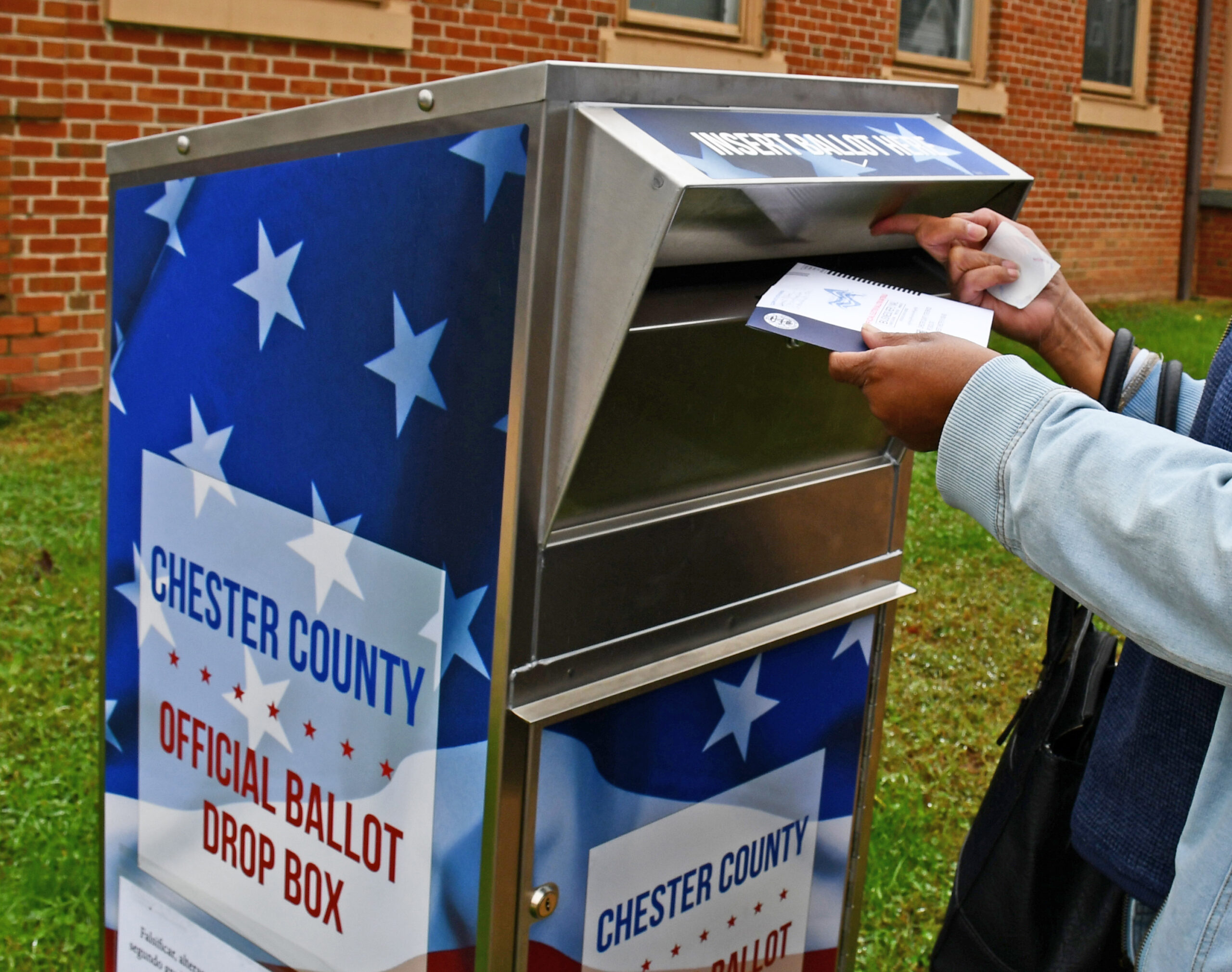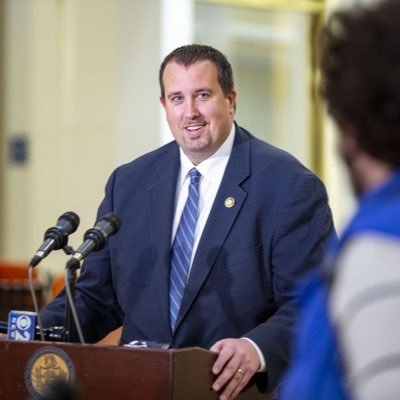Despite Litigation, PA Counties Use Different Standards To Reject Mail-In Ballots

Senior Assistant Montgomery County solicitor John Marlett said some 474 Montgomery County primary voters returned ballots with the wrong date.
“The year was either missing or incorrect,” he said. The Board of Elections then voted 2-1 to accept ballots without a year or the incorrect year. However, neighboring Delaware County adopted the opposite policy.
Marlett told the Montgomery County Board of Elections on Friday that the secretary of state’s guidance says a missing or incorrect year does not disqualify the ballot, leaving it up to county boards of election. The state issued that advice despite the fact that the Third Circuit Court of Appeals found wrong dates disqualified the ballots.
Montgomery County Board of Elections Chair Neil Makhija, a Democrat, said the policy of accepting incorrectly dated ballots was implemented during the North Penn special election and “the year [on the ballot] doesn’t provide any sort of security or validation.”
He moved to accept ballots dated between when they were distributed and when the election would be counted. Vice Chair Jamila Winder, also a Democrat, seconded it.
Republican Tom DiBello opposed the move, saying, “My opinion hasn’t changed.”
He noted that Act 77, the law allowing mail-in ballots, has not changed. “There’s been no change to the law. I didn’t support it then, I don’t support it now, and I won’t support it moving forward.”
Makhija said, “We shouldn’t allow something immaterial to disqualify or discount their vote… I think it’s really important for this board to protect the right to vote for all residents.”
The motion passed 2-1.
DiBello said, “Obviously, in Montgomery County, we interpret Act 77 the way we want.” He noted there were “significant issues” in the primary election process and suggested the election board meet monthly leading up to the general election to ensure a smooth process.”
In Delaware County, the Board of Elections took the opposite position from Montgomery County.
“The Third Circuit Court of Appeals ruled that the dates can be required by state law, overruling the federal Circuit Court ruling,” said James P. Allen, elections director for Delaware County. “Therefore, Delaware County did not process any ballots from envelopes that were completely missing a date or that were dated incorrectly.”
Linda Kerns, a Philadelphia election lawyer, said because of the guidance from the secretary of state, counties are making different decisions about which mail-in ballots to count.
“So, yet again, we have counties interpreting the issue quite differently which means, as usual, in Pennsylvania, ballots are being treated differently based on the county where you vote,” said Kerns. “Generally, counties with Republican election offices are interpreting date to mean month, day, year that you filled out the ballot. Democrat-led offices are taking a much more broad and liberal approach. That is not exclusive, though, as some Democrat counties are not counting. So it is, as usual, a disgrace.”
Kerns added, “Each court is interpreting a poorly written law very differently. We should have uniformity as to how these ballots are treated. That is what is fair and democratic. We do not have that.”
Please follow DVJournal on social media: Twitter@DVJournal or Facebook.com/DelawareValleyJournal











